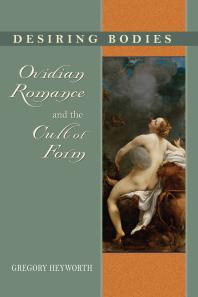Product desciption
Desiring Bodies Ovidian Romance And The Cult Of Form 1st Edition Gregory Heyworth by Gregory Heyworth 9780268081607, 0268081603 instant download after payment.
Gregory Heyworth's "Desiring Bodies"""considers the physical body and its relationship to poetic and corporate bodies in the Middle Ages and Renaissance. Beginning in the odd contest between "body" and "form" in the first sentence of Ovid's protean "Metamorphoses," Heyworth identifies these concepts as structuring principles of civic and poetic unity and pursues their consequences as refracted through a series of romances, some typical of the genre, some problematically so. Bodies, in Ovidian romance, are the objects of human desire to possess, to recover, to form, or to violate. Part 1 examines this desire as both a literal and socio-political phenomenon through readings of Marie de France's "Lais," Chretien de Troyes' "Cliges" and "Perceval," and Chaucer's "Canterbury Tales," texts variously expressing social, economic, and political culture in romance. In part 2, Heyworth is concerned with missing or absent bodies in Petrarch's "Rime sparse," Shakespeare's "Romeo and Juliet, " and Milton's "Paradise Lost "and the generic rupture they cause in lyric, tragedy, and epic. Throughout, Heyworth draws on social theorists such as Kant, Weber, Simmel, and Elias to explore the connection between social and literary form. The first comparative, diachronic study of romance form in many years, "Desiring Bodies" is a persuasive and important cultural history that demonstrates Ovid's pervasive influence not only on the poetics but on the politics of the medieval and early modern Western tradition. """"Desiring Bodies"answers the question that might dog Comparative Literature as a discipline, i.e. 'so what?'. In a bravura display of cultural and linguistic range, Heyworth turns his own supple, Ovidian intelligence to Ovidian irruptions from within the civilizing project of romance. Heyworth writes with intense literary inwardness, adroitly turned learning, and pitch-perfect prose." --James Simpson, Harvard University"Gregory Heyworth's "Desiring Bodies: Ovidian Romance and the Cult of Form"""is a wide-ranging, impressively learned, first-rate study with a provocative and weighty central argument." --Monika Otter, Dartmouth College "Gregory Heyworth's "Desiring Bodies"is a highly original study. It is also very daring--breathtakingly so, at times--in its deep engagement with major canonical writers and texts of the Middle Ages and the Renaissance, from twelfth-century Latin comedy to Milton's "Paradise Lost." His remarkable essay is achieved within a stimulating cultural and artistic exegesis of a single Ovidian line in which Heyworth finds his own large subject--the famous first line of the "Metamorphoses," in which the poet announces the intention to tell 'of forms changed into new bodies.'" --John Fleming, Princeton University "Ambitious in its aims, convincing in its arguments, and frequently surprising in its readings, "Desiring Bodies"asks us to reconsider how literary works both respond to and adapt the remains of the literary past. By establishing Ovid as the defining figure of formal metamorphoses across literary history, Heyworth opens new possibilities for imagining literary history as a history of literary form." --Jennifer Summit, Stanford University


